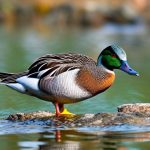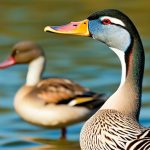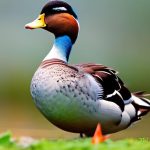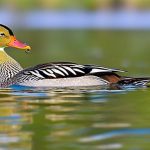The Nova Scotia Duck Tolling Retriever, also known as the Toller, is a medium-sized breed that originated in the early 19th century in the Little River District of Yarmouth County, Nova Scotia, Canada. The breed was developed to toll, lure, and retrieve waterfowl. The Toller is the smallest of the retrievers and is known for its distinctive red coat and playful nature. The breed’s name comes from the hunting technique it was originally bred for, which involves the dog playing and jumping along the shoreline to attract ducks within gunshot range. Once the ducks are close enough, the Toller retrieves them for the hunter.
The breed’s exact origins are not well-documented, but it is believed to have been developed from a mix of retriever breeds, spaniels, and possibly collies. The Toller was officially recognized by the Canadian Kennel Club in 1945 and by the American Kennel Club in 2003. Today, the Nova Scotia Duck Tolling Retriever is known for its intelligence, agility, and versatility. It excels in various dog sports such as agility, obedience, and flyball. The breed’s friendly and outgoing nature also makes it a popular choice as a family pet. Its unique history and distinctive hunting abilities have contributed to its growing popularity as a companion and working dog.
Key Takeaways
- The Nova Scotia Duck Tolling Retriever originated in the early 19th century in Nova Scotia, Canada, where it was bred to lure and retrieve waterfowl.
- A responsible breeder should prioritize the health and well-being of their dogs, and should be knowledgeable about the breed’s genetic predispositions and potential health issues.
- Health and genetic testing are crucial in breeding programs to ensure that hereditary conditions are not passed on to future generations of Nova Scotia Duck Tolling Retrievers.
- Socialization and training are essential in breeding programs to ensure that the dogs are well-adjusted, well-behaved, and able to fulfill their roles as hunting and retrieving companions.
- When looking for a reputable Nova Scotia Duck Tolling Retriever breeder, it’s important to do thorough research, ask for references, and visit the breeder’s facilities to ensure the dogs are well-cared for.
What to Look for in a Responsible Breeder
When looking for a responsible breeder of Nova Scotia Duck Tolling Retrievers, there are several key factors to consider. A reputable breeder will prioritize the health and well-being of their dogs above all else. They will be knowledgeable about the breed’s history, characteristics, and potential health issues. A responsible breeder will also be transparent about their breeding practices and will be able to provide documentation of health clearances for both the parents and puppies.
In addition to health clearances, a responsible breeder will also prioritize proper socialization and early training for their puppies. They will provide a clean and safe environment for their dogs and will ensure that the puppies are well-socialized with people and other animals from an early age. A good breeder will also be committed to finding suitable homes for their puppies and will be available to provide support and guidance to new owners throughout the dog’s life. Finally, a responsible breeder will be involved in dog sports or other activities with their dogs and will be able to demonstrate their dogs’ abilities and temperament.
Health and Genetic Testing in Breeding Programs
Health and genetic testing are crucial components of responsible breeding programs for Nova Scotia Duck Tolling Retrievers. The breed is generally healthy, but like all breeds, it is susceptible to certain genetic conditions. Responsible breeders will conduct health screenings on their breeding dogs to identify any potential genetic issues that could be passed on to their offspring. Common health tests for Tollers include hip and elbow evaluations, eye examinations, and DNA tests for progressive retinal atrophy (PRA) and collie eye anomaly (CEA).
By conducting these tests, breeders can reduce the risk of passing on genetic diseases to future generations of Tollers. In addition to health testing, responsible breeders will also consider the overall temperament and conformation of their breeding dogs. They will strive to produce puppies that not only meet the breed standard but also have sound temperaments and good overall health. By prioritizing health and genetic testing in their breeding programs, responsible breeders can help ensure the long-term well-being of the Nova Scotia Duck Tolling Retriever breed.
The Importance of Socialization and Training in Breeding Programs
Socialization and training are essential components of responsible breeding programs for Nova Scotia Duck Tolling Retrievers. Early socialization is crucial for puppies to develop into well-adjusted and confident adults. Responsible breeders will expose their puppies to a variety of people, animals, environments, and experiences during the critical socialization period. This helps puppies develop good manners, reduce fearfulness, and build positive associations with new stimuli.
In addition to socialization, responsible breeders will also prioritize early training for their puppies. Basic obedience training helps puppies learn important skills such as sit, stay, come, and walking on a leash. This foundation sets the stage for more advanced training as the puppy grows into an adult dog. By starting training early, responsible breeders can help set their puppies up for success in their new homes. They can also provide guidance and support to new owners to continue training and socialization as the puppy grows into adulthood.
Finding a Reputable Nova Scotia Duck Tolling Retriever Breeder
Finding a reputable Nova Scotia Duck Tolling Retriever breeder requires research and careful consideration. One of the best ways to find a responsible breeder is through referrals from other Toller owners or breed clubs. These sources can provide valuable insights into a breeder’s reputation, breeding practices, and the quality of their dogs. It’s also important to visit potential breeders in person to see their facilities, meet their dogs, and ask questions about their breeding program.
Another important factor to consider when finding a reputable breeder is their commitment to health testing and genetic screening. A responsible breeder will be able to provide documentation of health clearances for their breeding dogs and will be transparent about any potential genetic issues within their lines. They will also be knowledgeable about the breed standard and will prioritize producing dogs that meet these standards in terms of temperament, conformation, and working ability.
Questions to Ask a Breeder Before Purchasing a Puppy
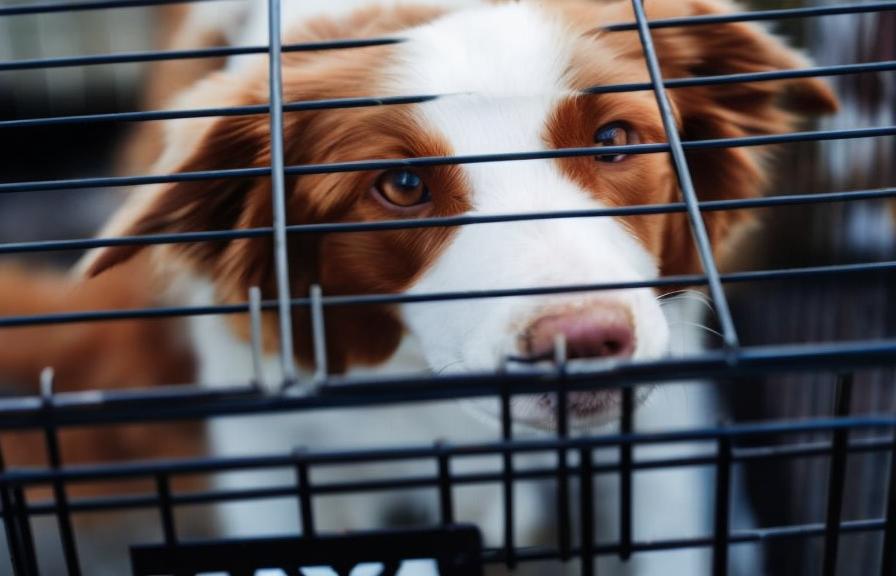
Before purchasing a Nova Scotia Duck Tolling Retriever puppy from a breeder, it’s important to ask a series of questions to ensure that you are dealing with a reputable and responsible breeder. Some key questions to consider include asking about health clearances for the parents, including hip and elbow evaluations, eye examinations, and genetic tests for conditions such as progressive retinal atrophy (PRA) and collie eye anomaly (CEA). It’s also important to inquire about the breeder’s socialization and training practices for their puppies.
In addition to health and training questions, it’s important to ask about the breeder’s involvement in dog sports or other activities with their dogs. This can provide valuable insight into the breeder’s commitment to producing well-rounded dogs with good temperaments and working ability. Finally, it’s important to ask about the breeder’s support system for new puppy owners, including any guarantees or contracts they offer, as well as their willingness to provide ongoing guidance and assistance throughout the dog’s life.
The Role of Breeders in Preserving the Nova Scotia Duck Tolling Retriever’s Unique Characteristics
Breeders play a crucial role in preserving the unique characteristics of the Nova Scotia Duck Tolling Retriever breed. This includes not only maintaining the breed standard in terms of appearance but also preserving the Toller’s distinctive hunting abilities, intelligence, and friendly temperament. Responsible breeders will prioritize producing dogs that embody these traits while also being healthy and well-adjusted companions.
In addition to preserving the breed’s physical and behavioral traits, breeders also play a role in promoting responsible ownership practices among Toller owners. This includes educating new owners about the breed’s needs, providing guidance on training and socialization, and offering support throughout the dog’s life. By promoting responsible ownership practices, breeders can help ensure that Nova Scotia Duck Tolling Retrievers continue to be valued as versatile working dogs and beloved family pets for generations to come.
If you’re considering adding a Nova Scotia Duck Tolling Retriever to your family, you may also be interested in learning about the importance of providing a suitable environment for your poultry. Check out this informative article on chicken coop run plans to ensure that your feathered friends have a safe and comfortable space to thrive. Creating a well-designed coop and run can contribute to the overall well-being of your animals, just like finding a reputable breeder is crucial for bringing a healthy and happy dog into your home.
FAQs
What is a Nova Scotia Duck Tolling Retriever breeder?
A Nova Scotia Duck Tolling Retriever breeder is a person or organization that specializes in breeding and raising Nova Scotia Duck Tolling Retrievers, a medium-sized gundog breed known for its intelligence, agility, and ability to lure waterfowl within gunshot range.
What should I look for in a Nova Scotia Duck Tolling Retriever breeder?
When looking for a Nova Scotia Duck Tolling Retriever breeder, it’s important to find one who prioritizes the health and well-being of the dogs. Look for breeders who are registered with reputable kennel clubs, conduct health screenings on their breeding dogs, and provide proper socialization and care for their puppies.
How can I find a reputable Nova Scotia Duck Tolling Retriever breeder?
You can find a reputable Nova Scotia Duck Tolling Retriever breeder by contacting local breed clubs, attending dog shows and events, and asking for recommendations from other Toller owners. Additionally, researching breeders online and visiting their facilities in person can help you assess their practices and the quality of their dogs.
What questions should I ask a Nova Scotia Duck Tolling Retriever breeder?
When speaking with a Nova Scotia Duck Tolling Retriever breeder, it’s important to ask about the health and temperament of the breeding dogs, the socialization and training of the puppies, any health guarantees or contracts, and the breeder’s involvement in the Toller community. Additionally, inquire about the breeder’s experience and ask for references from previous puppy buyers.
What are some red flags to watch out for when choosing a Nova Scotia Duck Tolling Retriever breeder?
Some red flags to watch out for when choosing a Nova Scotia Duck Tolling Retriever breeder include unregistered or unhealth-tested breeding dogs, unsanitary or overcrowded living conditions for the dogs, lack of transparency about the breeding practices, and reluctance to provide references or answer questions about the dogs’ lineage and health history.
Meet Walter, the feathered-friend fanatic of Florida! Nestled in the sunshine state, Walter struts through life with his feathered companions, clucking his way to happiness. With a coop that’s fancier than a five-star hotel, he’s the Don Juan of the chicken world. When he’s not teaching his hens to do the cha-cha, you’ll find him in a heated debate with his prized rooster, Sir Clucks-a-Lot. Walter’s poultry passion is no yolk; he’s the sunny-side-up guy you never knew you needed in your flock of friends!


